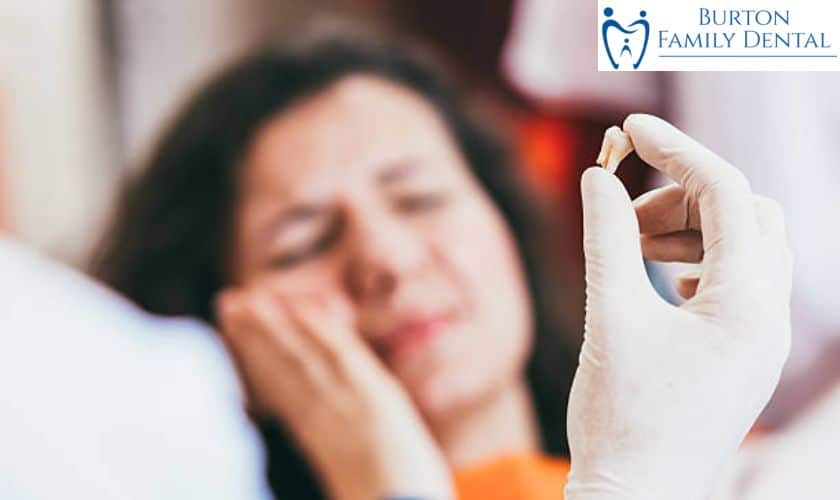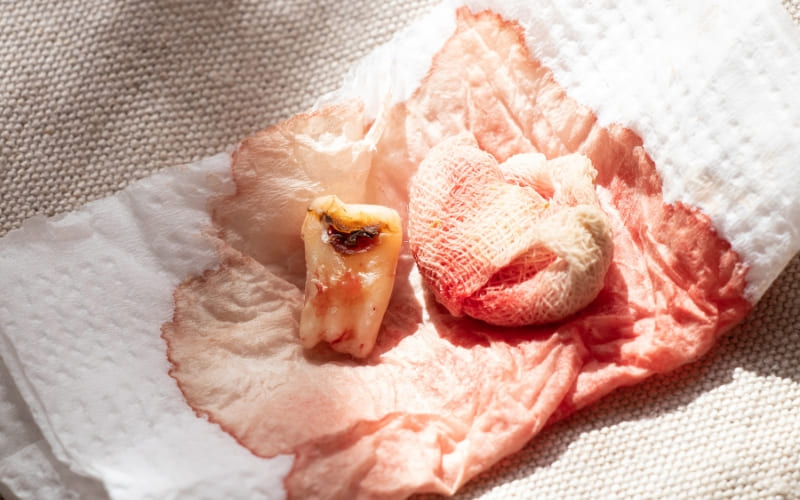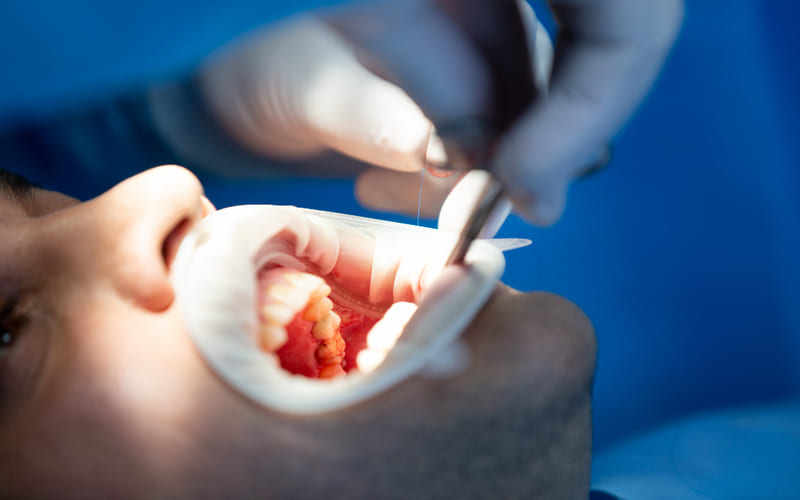Call: (810) 674-3060
Emergency Tooth Extraction In Burton

You might need a tooth extraction immediately, but you’re not sure. Here is all the information you need about emergency dental services.When the dentist office is closed, wondering if you need emergency services is one of the scariest things that can happen. Even more so if the problem is in your mouth.Many healthcare services are open 24 hours a day, but you can’t find a dentist who is open at 2 am. Instead of getting scared, it’s time to get some information.
You may need to go to the emergency room if you hurt yourself in an accident. In the same way, if you broke your teeth in an accident, you will need to see a specialist to ensure your oral health stays good. Our dental experts take care of dental emergencies.
Why Do I Need Tooth Extraction?
There are three common tooth extractions: simple extractions, extractions of teeth that are impacted, and removal of tooth roots. Before we talk about each of these, let’s look at some of the most common reasons you might need a tooth extraction.
- Damage to a tooth
- Crowded wisdom teeth
- Extensive decay
- Crowns cannot fix teeth that are broken.
- To get ready for braces
- Too many teeth too close together
Don’t worry about pain if you are. Our goal is to make each patient’s procedure as easy as possible.
Types Of Teeth Extraction
Simple Extraction
Simple tooth extractions are the most common dental procedure in the United States. They are a way to get rid of a tooth without getting below the gum line. This is usually done when the tooth and roots are in a shape that makes them easy to remove. After making sure the area is numb and you are completely comfortable, our dentists use forceps to pull out the tooth.
Extraction Of Impacted Teeth
When wisdom teeth don’t come in the right, the most common type of impacted tooth extraction is done. When teeth get stuck in the gums and can’t come out properly, you need oral surgery to remove the tooth to keep your smile healthy. This option ensures that your teeth and jaw are safe instead of leaving your damaged tooth in your jawbone.
Teeth Roots Extraction
When your teeth are pulled out, sometimes the roots stay behind. These leftover roots can cause pain and other dental problems, but our team can help. After numbing the area, we’ll get to the tooth roots and pull them out. This will make your teeth happy and healthy again.
What Should I Expect During The Process Of Extraction?
The process of getting the oil out is pretty quick and easy. First, we’ll numb your mouth with a local anesthetic, so you don’t feel any pain during the procedure. You may also get a general anesthetic if your tooth is impacted or if you need to have several teeth pulled. This will put you to sleep during the procedure.
After putting you to sleep, we’ll pull the tooth. Then, we might put gauze in the empty hole and tell you to bite down to stop the bleeding. In some cases, we might stitch the gum back together.All done! After we pull out your tooth and stop the bleeding, you’ll be able to go home.
How Long Does it Take To Extract A Tooth?
If only one tooth needs to be taken out, the whole process can be done in 20 to 40 minutes. But if you need more than one tooth pulled, you can expect to spend a little more time in our office. Depending on where it is, each extra tooth will add 3–15 minutes to the appointment time.
Will It Hurt When The Tooth Is Taken Out?
No. You won’t feel any pain because the nerve fibers that send pain signals will be numbed. You will feel pressure, though. This pressure shouldn’t bother you, but we’re telling you about it here because the more you know what to expect, the easier it will be to stay calm during the procedure.
Is There Anything Else I Need to Know About Getting a Tooth Extracted?
You should know that loud noises will be made during the process. This is the part of the process that most people don’t like. If you have headphones, bring them with you so you can listen to music while your tooth is being pulled.
It would help if you also planned to follow our instructions for taking care of yourself after an extraction so that you heal quickly and don’t get an infection.
What If I Need An Extraction Right Away?
Most people who need emergency tooth extractions go straight to the emergency room. But hospitals usually give painkillers and send people back to their dentists because they don’t have the tools to do that work.
When patients need emergency extractions, many dentists have to send them to an oral surgeon.
Keeping track of the risks that come with a procedure is just for your information. Most tooth extractions go smoothly, and if you follow the post-surgery instructions, things will return to normal in 7–10 days. But the information below will help you if you find yourself in one of the dangerous situations.
Bad Alignment of Teeth
When a permanent tooth is pulled, the other teeth may shift, causing the other teeth to be out of place. This, in turn, makes the bite change. In this case, more help is needed, such as orthodontic adjustments to fix the misalignment and any biting problems, if there are any.
On the other hand, the tooth that is missing or pulled out needs to be replaced as soon as possible. Many therapeutic methods can be used for this. Modern dentistry has a lot of ways to replace missing teeth, like dental implants, bridges, and dentures, among other things.
Collapsed Bite
Some people, especially those with back teeth taken out, may have their bite collapse. It’s better to say that the lower jaw moves closer to the upper jaw. This is called “loss of vertical dimension of occlusion.” When the occlusions change, the muscle contractions also change, leading to symptoms like dry, chapped, or cracked lips. Pain after surgery and other problems that come with it.
Tooth Extraction Is Linked To Some Common Side Effects After Surgery, Such As:
Pain or Inflammation
Pain and inflammation after surgery and other problems that come with it. Tooth extraction is linked to some common side effects after surgery
Blood Loss And Getting Sick
Most of it is normal and, hopefully, will go away with time. Usually, doctors give you painkillers and medicines that reduce inflammation to help you feel better. Only bleeding that doesn’t stop or an infection in the area is less common and needs more care, like antibiotics, etc.
Some Safe Medications
Some medicines, like bisphosphonates used to treat osteoporosis or even some types of cancer, can make it harder for some tissues, like your jaws, to heal.
Osteoradionecrosis
If you have had radiation treatment in the head and neck area in the past, you are more likely to get a condition called osteoradionecrosis after having a tooth pulled. Osteoradionecrosis is when the bone dies because radiation hurts the blood vessels and kills the bone. When the bone under the extracted tooth is destroyed, it doesn’t leave enough room for implants or dentures to replace the tooth.
Socket Dry (Osteitis)
Remember the doctor told you to hold the gauge tight where the tooth was taken out after the surgery? The goal is to keep the blood clot from coming loose too soon! When a tooth is pulled, a natural blood clot forms over the site. This blood clot can cause osteitis or dry socket if it moves around.
Nerve Injury
Nerve damage is a rare side effect. This could happen during the surgery if your surgeon’s hands aren’t used to it or if he isn’t careful. The result is a permanent feeling of tingling or numbness in the area!
The Sinus Of The Maxilla Is Exposed
This problem has to do with taking out the upper molars. When these teeth are taken out, a hole that leads to the maxillary sinus can be found. This needs to be fixed right now. A dental X-ray shows how much of the sinus is exposed and helps decide which treatment options are best.
A little bit of understanding could sometimes be a good thing. There could be other risks involved with pulling a tooth in certain cases. But they would be the only ones not to follow the rule. With modern anesthetics and tips on taking care of yourself after surgery, extraction is a common and easy way to treat a toothache.
Even though many kinds of problems can happen after surgery, we’ve discussed the most important ones above. Not that they’re all rare. Some things that happen after a tooth extraction happen to almost everyone, and your dentist will usually tell you what you need to do to take care of yourself. It’s important to keep track of the rare ones. This will keep you from getting scared in case of an emergency.You can visit our emergency dentist for any immediate tooth extraction treatment.




